Tarun Hato, a progressive farmer and a former Chairman of the Rabha Hasong Autonomous Council in Assam started growing oil palm with the dream of increasing his earnings from his farmland. Failure to get remunerative price has forced Hato and a section of other oil palm cultivators in Assam’s Goalpara and Kamrup districts to stop growing it and uproot the plants for clearing the land for cultivation of alternative crop.
These farmers have been passing through a crisis situation after taking to oil palm cultivation. While Assam Government has been selling new dreams of earning fortune from oil palm, a section of farmers cultivating it in the two districts under a pilot project, are finding it unsustainable. The state government has set the target of bringing 3.75 lakh hectares of land under oil palm.
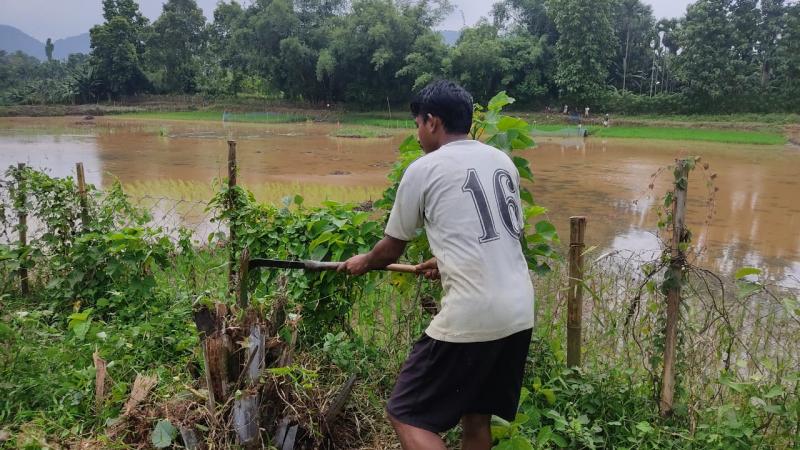
Photo- Kishore Talukdar
“Each kilogram of oil palm fetches us only Rs 8. When traders collect it from the farm gate, only Rs 2 is offered to the farmer. Without the remunerative price and the market, only two options are left for us-either to sell the produce at very low price, or leave them to be rotten,” he says.
Other oil palm cultivators in the two districts say that the government must announce Minimum Support Price of Rs 12.30 a kg for sustainability.
Hato has uprooted oil palm plants from three bighas of his farmland that he had planted in 2014. The plants started bearing fruits after four years. He had 20 trees on each bigha of land (Nearly 7.5 bigha constitute one hectare in Assam). On an average one tree produced a yield of 15 kg a month. Therefore, total yield from one bigha was about 300 kg a month or about 3600 kg a year. Average input cost per bigha is about Rs 500. Thus, maximum yearly earning from Hato’s entire plot of land was around Rs 37,200 when the selling price is Rs 8 per kg.
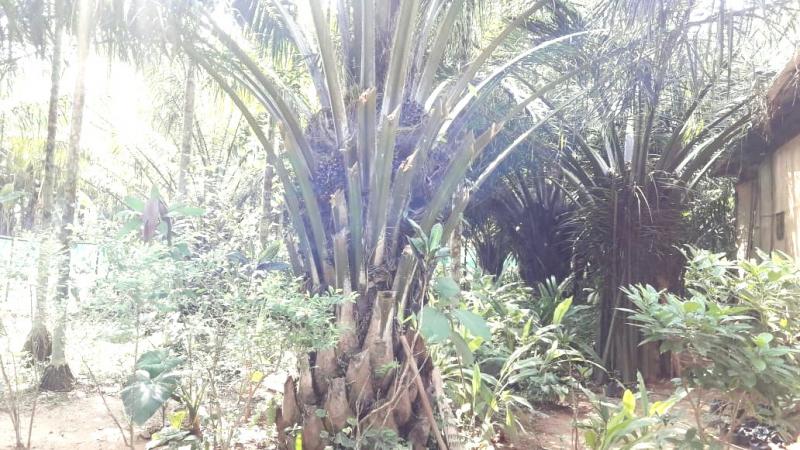
Photo courtesy- Mritunjay Rabha
He used to grow cabbage and other vegetables on this plot before starting oil palm plantation. After uprooting the oil palm plants, Hato has resumed growing vegetables and rubber on the plot.
Hato said that a company from Andhra Pradesh was to set up a processing unit at Piplibari under Rongjuli Revenue Circle in Goalpara district but it is yet to be a reality.
“Farmers were assured that oil palm would transform their economic condition but it ruined us. We were told that twenty plants are enough to run a family smoothly. Till now, farmers have failed to derive any benefit. It seems nobody is interested in working for the benefit of farmers, Hato alleged.
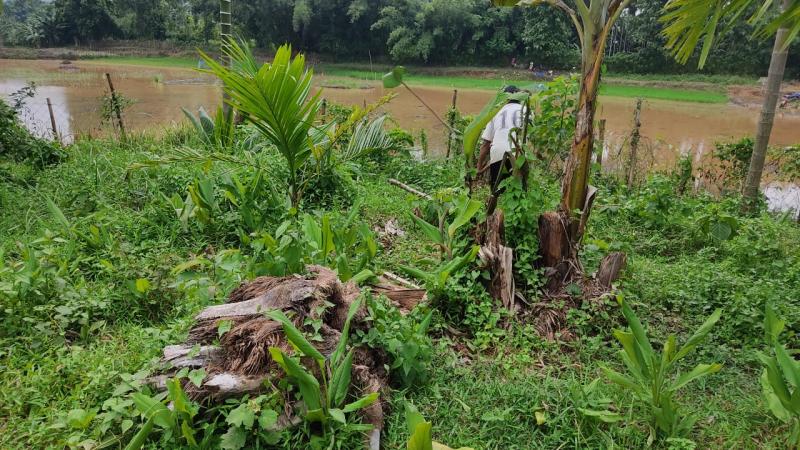
Photo- Kishore Talukdar
Sharing his experience, Mritunjay Rabha of Kahua in Kamrup told this reporter that he had suffered heavy losses after planting 100 oil palm plants in 2020 as intercropping on a plot of four bighas where he had already grown banana and areca nut. “I failed to harvest a single bunch of banana and areca nut for past two years as these trees withered,” he says. He was worried about soil health condition of his plot and did not wait for harvesting the produce and uprooted the plants in 2022. The stumps of the slashed plant refused to die, so he had to use lime and salt to fully uproot those. Rabha has replanted banana and areca nuts on the four-bigha plot of land.
Harkanta Bashumatari, a farmer of Dudhnoi in Goalapara district is engaged in oil plam cultivation with five others on a large plot of 160 bigha taken on lease since 2014-15. They completed the plantation in 2016. Basumatary’s individual income from oil palm is about Rs 7 lakh from which he also pays the lease amount. He says they need MSP of Rs 12.30 per kg for long term sustainability. They used to cultivate paddy, sesame and pea before shifting to oil palm.
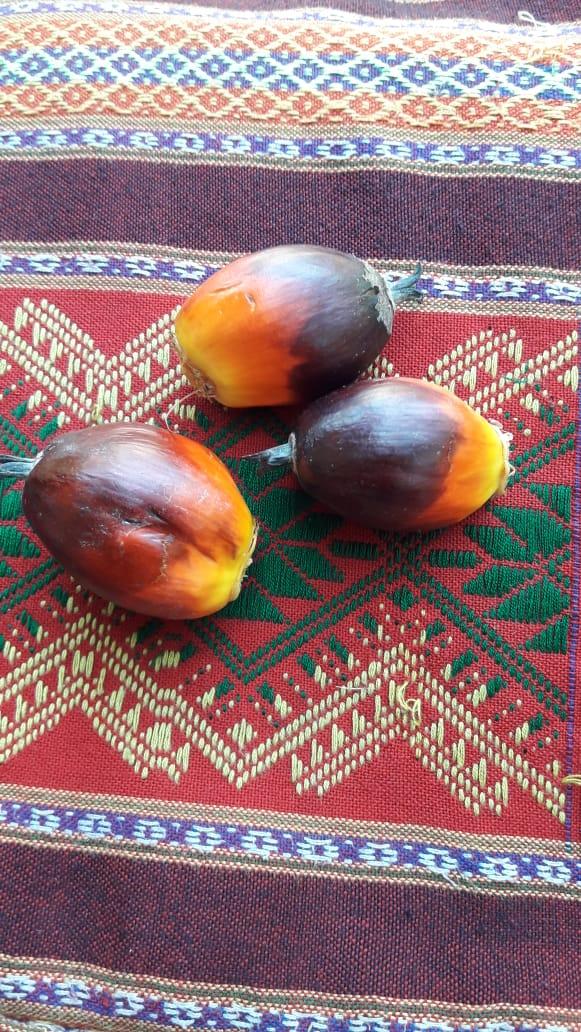
Photo courtesy- Mritunjay Rabha
Dr Nalin Mohan, former chief scientist of Horticulture Research Centre said that oil palm should not be allowed to damage land of farmers. He said that farmers with small land holding cannot realise benefit from it. He also said oil palm is not like areca nut and coconut and must be processed within 24 hours. Therefore, establishment of processing unit is the most essential requirement for success of oil palm cultivation.
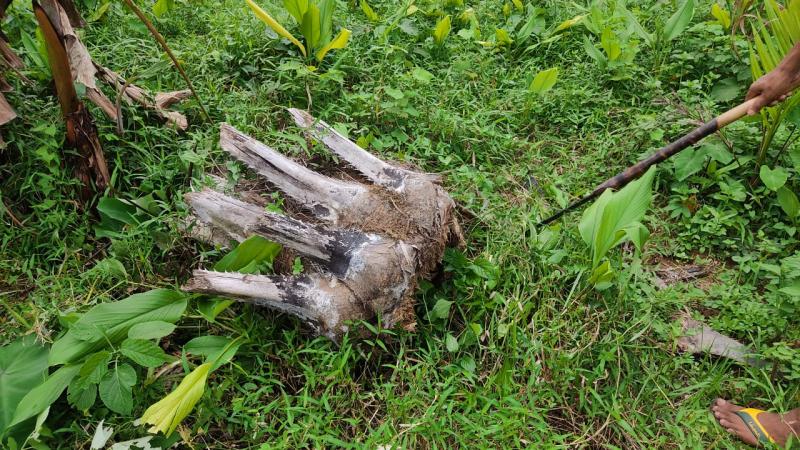
Photo- Kishore Talukdar
Nayan Bora, retired district Agricultural Officer of Goalpara said the Revenue department handed over a plot of land covering 50 bigha at Piplibari in 2017 to the Agriculture Department for establishment of a processing unit but it is yet to come up.
Goalpara District Agriculture Officer Budhesawar Das claims that the farmers will be able to realise the benefit once processing unit becomes a reality. “Agriculture department cannot directly hand over the plot of land to a private company. The company needs to take the initiative. Now an agreement has been signed with RUCHI (Patanajali Food Limited) for setting up the processing Unit, he says.
Das also said that the department will initiate intercropping and multi cropping in the areas under oil palm farming. “We will promote planting cocoa plant which is perennial plant and has good market demand. And there will be bio fencing around the plot with lemon,” he adds.
There are 2035 oil palm farmers in Goalpara and area under oil palm farming is 1053 hectare.